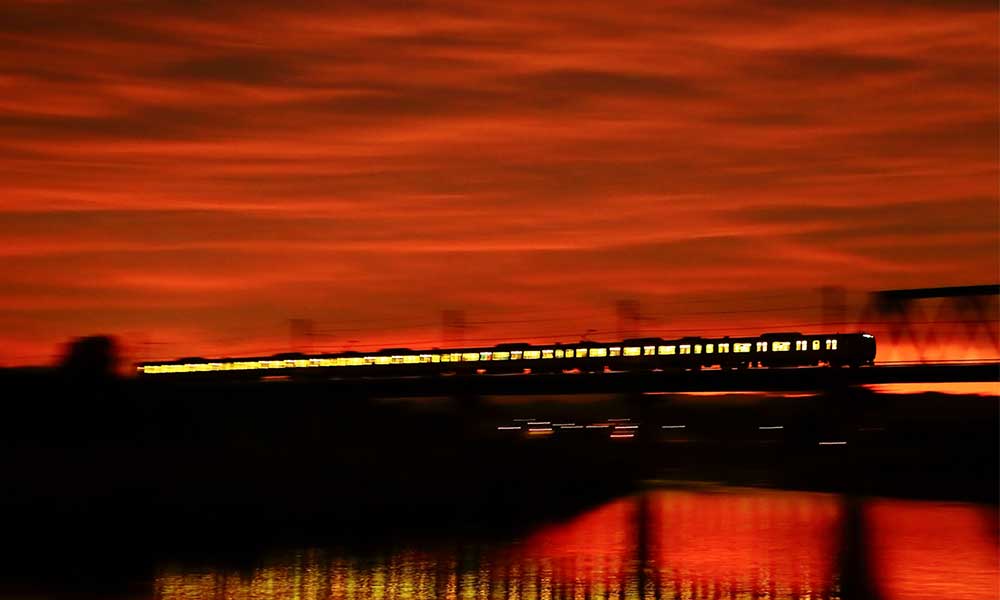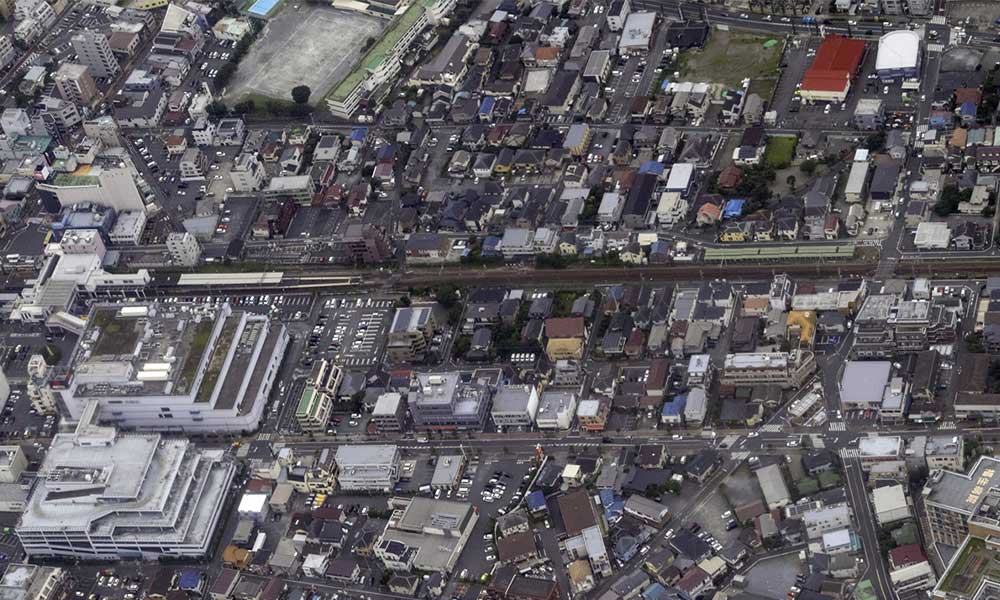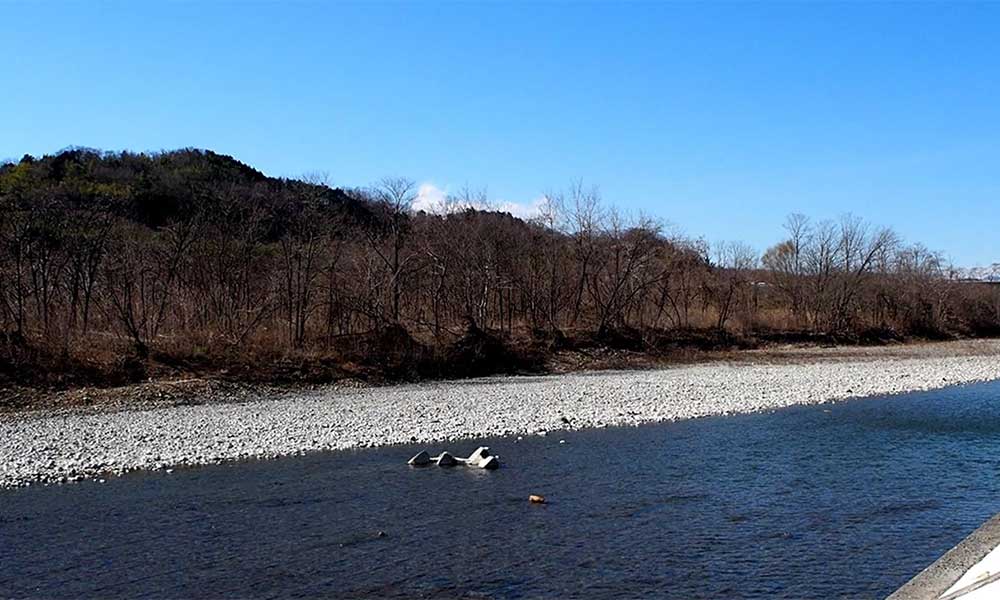Fussa City, Tokyo東京都福生市
Living in Fussa City, Tokyo

We have Summarized the livability of Fussa City, Tokyo.
NISHITAMA AREA西多摩地域
CONTENTS
- What kind of place is Fussa City, Tokyo?
- Fussa CityPR video
- How is the traffic situation in Fussa City?
- How are the rent and land prices in Fussa City?
- How is childcare and education in Fussa City?
- How about shopping in Fussa City?
- How about jobs and recruitment in Fussa City?
- Fussa City’s unique subsidy/subsidy system
What kind of place is Fussa City, Tokyo?

Fussa City is a quiet town blessed with a natural environment and is home to a US military base.
Fussa City is located in the northwest of Tokyo and has an area of approximately 10.16 square kilometers.
It borders Hamura City and Mizuho Town to the north, Tachikawa City, Akishima City, and Musashimurayama City to the east, Hachioji City to the south, and Akiruno City to the west.
It has a population of approximately 56,000 and approximately 30,000 households. (As of June 2023)
It is located in the western part of the Musashino Plateau, and the Tama River and Tamagawa Aqueduct run parallel to each other, with the terrain sloping gently from north to south along the river.
There are various theories about the origin of the name Fussa City, but one theory is that it was considered an important place for the clan that ruled the area around Fussa during the Muromachi period to protect their territory from the northern Musashino region, and that the name gradually changed from the meaning of “blocking” the north to “Fussa”, but the exact reason is unknown.
The history of Fussa City dates back to the late Edo period, when farmland began to expand and sake brewing and other businesses began to operate.
During the Meiji period, the area developed into a farming village with sericulture and sake brewing as local industries.
Around this time, roads and other facilities were developed, and the first railway opened in 1894, and the city gradually modernized.
From the Taisho period to the early Showa period, new railways were opened, and commerce and industry also developed in this peaceful rural area.
During the Showa period, the former Japanese Army airfield was built and related facilities were relocated, resulting in an increase in population.
When Japan ended the war in September 1945, the Army Tama Airfield was reborn as the U.S. Yokota Air Base.
Then, in 1970, the city was incorporated as Fussa City.
Currently, Fussa City is a “base town” with Yokota Air Base taking up about 34% of the city area. It has many exotic areas, but is also developing as a region with a landscape of residential areas full of nature.
In recent years, the city has also been focusing on urban landscape projects, and is famous as an area with artistic landscapes, with works by artists living in the Tama area.
In addition, fireflies, which are rarely seen in Tokyo, live here, and at the “Fussa Firefly Festival” held every June, you can see “Genji fireflies” raised by local people, and the festival is lively with events and stalls around the venue.
Along National Route 16, near Yokota Air Base, there is a shopping street called Fussa Bayside Street. It is an exotic area lined with restaurants, general goods, and clothing stores that incorporate American culture. On weekends, flea markets and festivals are held to entertain visitors.
Kumagawa Shrine is the only shrine in the city, founded in the early Heian period. It is also famous for enshrining all seven gods of good fortune, and is popular as a shrine where you can complete your tour of the seven gods of good fortune.
PR video of Fussa City, Tokyo
Fussa City PR animation “A stroll around town with a film director!”
Fussa City Promotional Video「What’s Up FUSSA 」
How is the traffic situation in Fussa City?

Fussa City is a city with easy access to the city center via train and bus.
There are three train lines and four stations in Fussa City. It takes about 60 minutes from Fussa Station to Tokyo Station and about 44 minutes to Shinjuku Station.
| Fussa Station | JR Ome Line |
| Ushihama Station | JR Ome Line |
| Higashifussa Station | JR Hachiko Line |
| Kumagawa Station | JR Itsukaichi Line |
Nishitokyo Bus and Tachikawa Bus operate local bus routes within Fussa City.
There are no expressways accessible from Fussa City.
To get to Fussa City, you can use National Route 16, which starts and ends in Yokohama City, Kanagawa Prefecture, and loops around the greater Tokyo area.
There are relatively many trains running, and it’s conveniently located near Shinjuku and other areas.
Traveling by car is difficult as there are many narrow roads and national highways are constantly congested.
How are the rent and land prices in Fussa City?

Fussa City is a pleasant place to live, with quiet residential areas surrounded by nature.
According to information from a real estate information website, the average rent in the city for a newly built apartment within a 10-minute walk from the station is about 64,000 yen for a 1K and 112,000 yen for a 2LDK.
The average land price is about 670,000 yen per tsubo.
The average price of a newly built apartment is 35,930,000 yen, the average area is 57.67 ㎡, and the average price per tsubo is 2,060,000 yen per tsubo. (As of 2018-2022)
The city is located a fair distance from the city center, and is an area where many detached houses can be seen.
There are also several condominiums for sale within walking distance of the station, mainly around the east exit of JR Fussa Station.
Compared to the city center, both land prices and rental prices tend to be relatively low, but it is a short commute from Fussa Station to Shinjuku Station, which is in the city center, and it takes about 45 minutes at the earliest.
The area is characterized by the fact that Yokota Air Base, a US military facility, is nearby, meaning that there are many American military personnel and their families living in the area.
In addition, there is a fair amount of noise from fighter jets around the base, so this is something you should take into consideration when looking for a property.
Compared to surrounding areas with similar commute times to Shinjuku Station, many of the homes here are less expensive.
If you live near a base, you will need to check noise levels, etc.
How is childcare and education in Fussa City?

Fussa City is a city with well-developed educational facilities, child-rearing support, and a vibrant local community.
Fussa city has 12 nurseries, 4 kindergartens, 7 elementary schools, 3 junior high schools, 2 high schools, but no junior colleges, universities, or vocational schools.
For both outpatient and inpatient medical expenses, infants covered by the “Infant Medical Expense Subsidy System” (up to the first March 31st after reaching age 6) are fully subsidized. Children between the ages of 7 and 18 under the “Compulsory Education Children’s Medical Expense Subsidy System” and the “High School Student Medical Expense Subsidy System” (until March 31st after they reach the age of 18) are eligible for subsidies, with a maximum of 200 yen deducted from the out-of-pocket expenses for insured medical treatment per visit, and full subsidies for medication, hospitalization, and home care visits.
Fussa City also has a wide range of unique support measures.
The Fussa Childbirth and Childrearing Support Project provides support for families with children through “supportive consultations” where midwives and other specialists interview pregnant women and provide advice and information on childrearing, and “financial support” where pregnant women are given childbirth and childrearing support gifts (catalog gifts worth 50,000 yen each) after the interview.
The Childrearing Plaza Project provides opportunities and events where families with children can interact.
For example, the “Fureai Hiroba” has specialized staff on-site and can be used as a place to hold events and provide support for child-rearing.
The parenting salon “Hato Poppo” is open to pregnant women and parents raising children, and is a place where parents and children in the same situation can interact and share information about child-rearing.
The “Family Support Center Project” is a system in which both people who need child-rearing assistance and those who can provide child-rearing assistance become members, and the aim is for parents to help each other raise their children within the community. This is a relatively low-cost system that can be used by dual-income households and those who are struggling to find someone to look after their children for unavoidable reasons.
There are also a wide range of facilities and systems available where you can leave your children with peace of mind.
The “After-School Club” is aimed at elementary school students and provides a place where children who are left alone after school due to their parents finishing school can play and study safely.
In addition, there are several “children’s playgrounds” and “play parks” within the city where children can play safely and with peace of mind.
There are a relatively large number of nursery schools, and very few children on waiting lists.
There are few educational institutions, and depending on where you live it can take a long time to commute to school.
How about shopping in Fussa City?

Fussa City has commercial facilities and is convenient for everyday shopping.
Fussa city is mostly residential areas and places with lots of nature, and there are no large shopping malls or department stores.
However, there are large supermarkets, electronics retailers, and drug stores where you can purchase daily necessities around each station and along the national highways, so you should have no trouble buying daily necessities.
There are about eight supermarkets in the city, including Marufuji and Seiyu, and the Seiyu Fussa store is one of them, which is convenient as it is open 24 hours a day.
Fussa Bayside Street, located near Yokota Air Base along National Route 16, is the shopping street closest to America in Japan, and is lined with restaurants, clothing stores, miscellaneous goods, and more, making it a fun shopping spot even just to look around.
There are many restaurants and places to buy daily necessities, especially in front of stations and along national highways, making it very convenient.
There are few stores selling clothing or high-end brand items.
How about jobs and recruitment in Fussa City?
Fussa City: A city with a wide variety of job opportunities and easy access to the city center
The average annual salary in Fussa City is 3.28 million yen.
Fussa City is mainly made up of residential areas, and there are few areas where general companies and factories are concentrated.
As for manufacturing, although there are not many, there are several manufacturing plants for publishing and printing, food, and sake brewing.
Also, as it is said to be a base town, there are relatively many American-themed stores and restaurants, mainly along the national highways.
Therefore, you can expect to find jobs in manufacturing, customer service, sales, restaurant staff, and more.
There are many commercial facilities and stores around Fussa Station and along the national highway, so there are a steady supply of job openings in the service industry, such as sales.
Compared to urban areas, there are fewer job openings and salaries are often lower.
Fussa City, Tokyo’s unique subsidy/subsidy system
Fussa City, Tokyo’s unique housing assistance and subsidy system
Fussa City, Tokyo’s unique childcare support system
| Subsidy system for pregnant women returning home to their hometown for health check-ups Baby’s First Picture Book Project Fussa Childrearing Marutoku Card |









